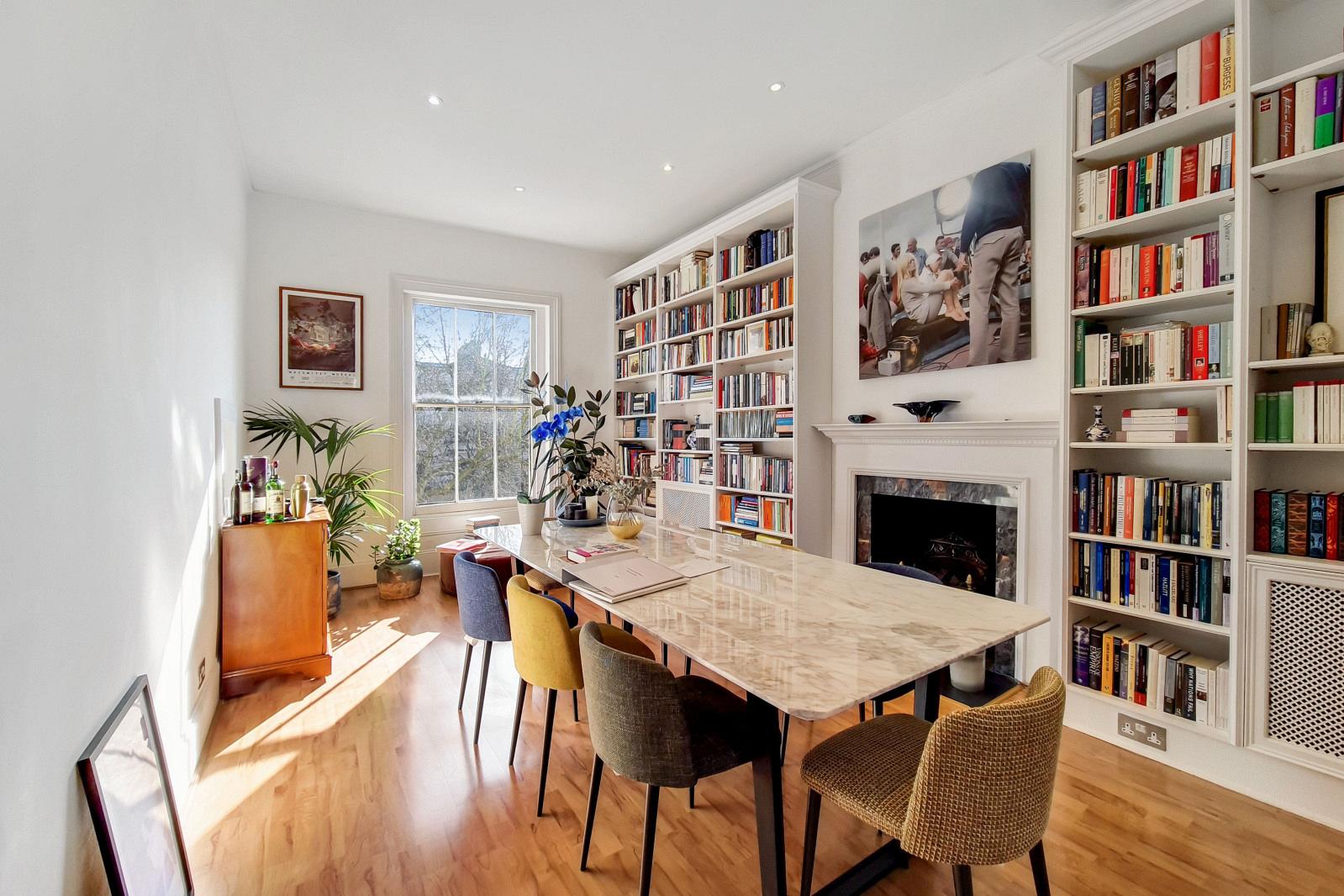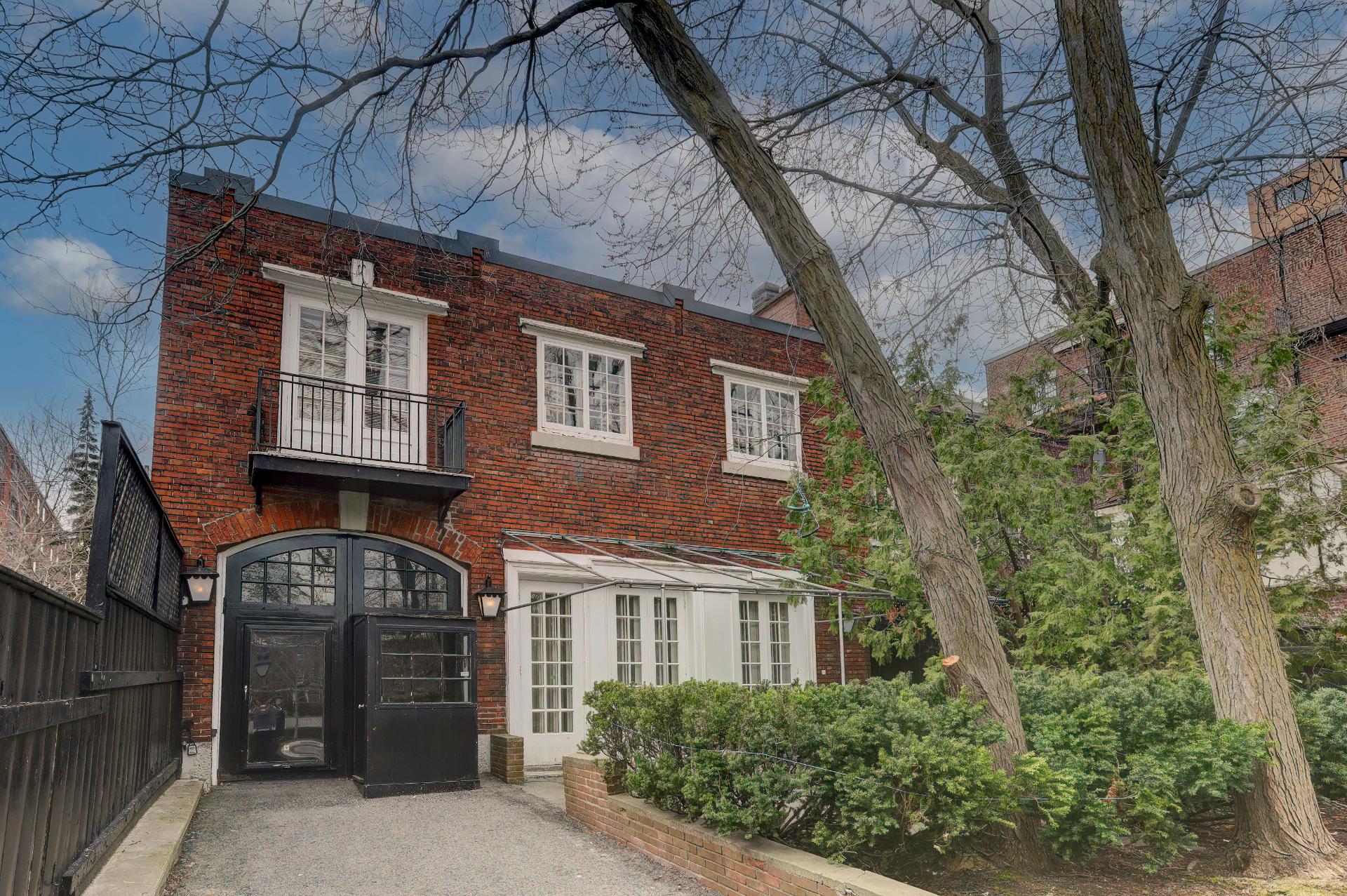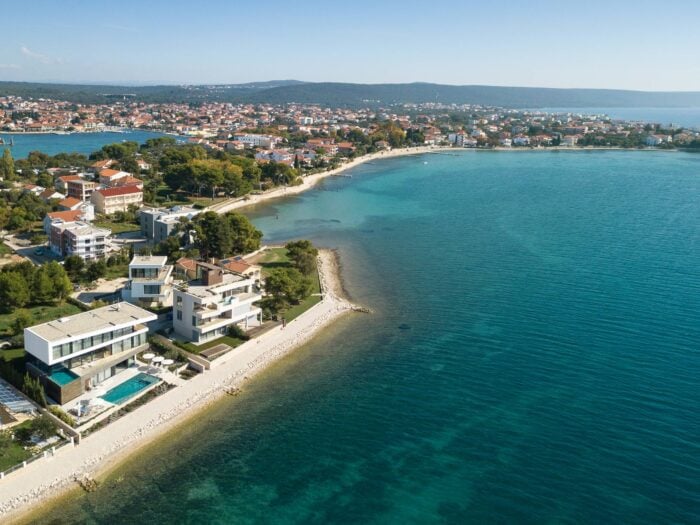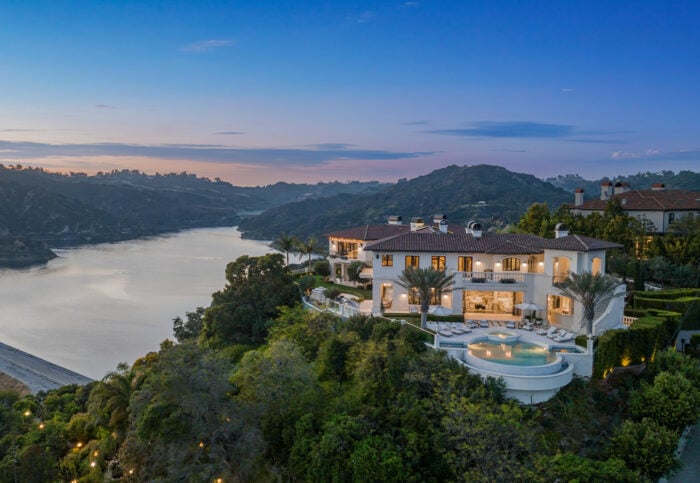As global property markets adapt to the changing economic and geopolitical landscape of a post-Covid world, we predict that luxury property will remain an important part of most HNW and UHNW individuals’ overall investment strategy. We asked our real estate experts around the globe to discuss the factors they believe will be most influential in impacting the decisions of potential luxury buyers in 2023 and beyond.
The Trends Impacting Prime Property Markets
Over the last three years, many of the world’s prime property markets have witnessed higher levels of activity and price growth than ever before. The extraordinary demand for prestige housing began to wane in the latter part of 2022 as inflationary pressures, recession fears, equity portfolio depreciation, political instability, and inventory constraints caused some buyers pause. As we move into 2023, we asked experts from across the Forbes Global Properties network what they anticipate will be the factors set to influence their luxury property markets this year and beyond.
What is the number one issue luxury property specialists anticipate will impact their markets in 2023? Nearly two thirds of our surveyed brokers reported that economic concerns is one of the top three factors impacting their markets in 2023, with an overwhelmingly negative anticipated effect on both luxury pricing and transaction volume. Among the other factors cited by members as likely to impact markets in 2023 are inventory constraints (45%), political instability (41%), the impact of remote work (38%) and a shift in overseas buyers and foreign investment (31%). Other factors will have a more positive or mixed effect on prime property markets.
In addition to these top factors, many Forbes Global Properties members noted that another issue likely to impede sales activity is the gap between luxury seller and buyer pricing expectations. Although appropriately priced property listings will continue to attract offers, aspirationally priced properties will receive little qualified activity. Consumer uncertainty about the potential for further price reductions in 2023 is resulting in hesitation on behalf of buyers to act. In a market that is no longer responsive to over-pricing, brokers anticipate that sellers’ motivation to transact will result in an easing of luxury prices, and buyers and investors will reenter the market to pursue opportunities.
Another factor that is set to influence certain regional luxury markets in 2023 is the sway of government intervention. “Effective January 1, 2023, the Canadian Federal Government banned most foreigners from buying homes for two years and is providing billions of dollars to spur construction activity in an attempt to cool off a surging real estate market,” says Richard Beaumier, President and Agency Executive Officer of Profusion Immobilier in Montreal. “This government intervention is likely to have a negative impact on the property market.” Even in Europe, where citizenships through investment in real estate has been popular over the past decade, resulting in increased luxury home activity, governments have greatly increased the price of investment in many countries with ‘Golden Visa’ programs.
The make-up of the affluent buyers and the way they purchase prime property is set to have an impact in 2023 as well. In Hawai’i, “new wealth and new HNWIs continued to fuel luxury real estate’s growth through the first half of 2022,” said Matt Beall of Hawai’i Life. “We are seeing a more motivated group of buyers who are not as sensitive to higher mortgage rates as buyers of less-expensive homes. Many view luxury real estate as an asset class and many have been buyers who converted crypto currencies in order to purchase.”
Although not likely to impact overall market movements, many members reported that environmental concerns are having an impact on how, what and where buyers are purchasing prime property. According to Anthony Morsinkhof of PQ Property Intelligence in New Zealand, “Affluent buyers who may have previously wanted a direct waterfront property are now seeking to purchase atop a hill overlooking the water versus directly on the water, to offset potential insurance and environmental issues that may arise.” According to Forbes, nearly a third of Americans cited climate change as a reason to move in 2022, as concerns about severe weather like hurricanes and wildfires, that cause property damage as well as extreme temperatures, became important.
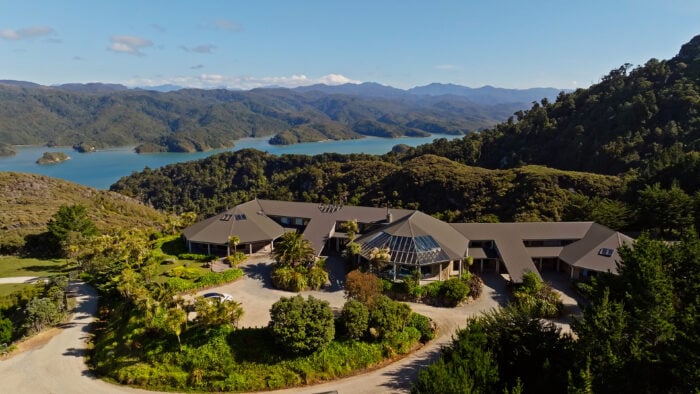
This luxury New Zealand lodge is situated next door to gorgeous subtropical beaches. (Property Intelligence)
1. Economic Concerns
62% of surveyed members expect economic concerns to be one of the top three factors negatively impacting their luxury property market in 2023.
A confluence of economic concerns—from rising inflation to a decline in stock market portfolios to recessionary fears—topped the list of the factors brokers predict will influence prime property markets in 2023. “We believe a downward price shift in the luxury market will be driven by continued concern over recession, stock market volatility, and interest rate hikes,” said Catherine Bassick of Bassick in Boston, Massachusetts.
Some luxury real estate experts expressed concern that declines in the equities and bonds markets and the limited IPO activity in 2022, resulting in modest bonuses for Wall Street and financial services executives for 2022, will be an additional factor. This, coupled with substantial job cuts in the tech industry, are expected to diminish the purchasing power and motivation of some HNWIs and UHNWIs, and may have a softening effect on the prime property market, particularly for secondary homes, which are considered more discretionary acquisitions.

Designed by Portland architect Roscoe D. Hemenway, the Mittleman Estate in Oregon boasts gorgeous views, a rich history, and modern amenities. (LUXE)
2. Inventory Constraints for Suitable Homes
35% of surveyed members expect inventory constraints to be one of the top three factors negatively impacting their luxury property market in 2023, while 10% expect a positive impact.
In many of the world’s top property markets, lack of suitable inventory remains a major issue. In total, 45% of brokers surveyed expect this trend to influence luxury sales in 2023. Inventory constraints have been an ongoing issue stemming from the 2008 global financial crisis. At the end of 2020, the U.S. was short 3.8 million units of housing, according to Freddie Mac, and inventory constraints have been exacerbated by the pandemic-fueled housing boom. In undersupplied Houston, Texas: “Covid compounded the short supply, and a steady amount of domestic and international migration to Texas, and specifically Houston, continued to keep supply low,” said Jaime Baker of Baker & Co.
The scarcity of top-tier properties for sale will continue to restrict potential activity in 2023, as some wary sellers in particular retreat to the sidelines. Renee Grubb of Village Properties in Santa Barbara, California, explained that “Even though it has been and remains a seller’s market, sellers are reluctant to sell unless they really want or need to. It’s difficult to find a replacement property.” In San Diego, inventory constraints are fueled in part by “older residents who have so much capital gain in their property. Rather than market their house, they’re staying and thus they’re not bringing inventory to fuel demand,” said Andy Nelson of Willis Allen Real Estate.
In 2023, seller hesitancy is likely to continue across the board. “Within the top 20% of the market, “need-based” seller/buyers continue to transact, but there is a hesitance for “want-based” buyers as they hope inventory choice will increase and pricing will become more favorable,” observed Michael Bassick of Bassick.

This freshly built luxury estate in McLean, Virginia ticks every box when it comes to modern amenities. (Long & Foster)
3. Political Instability (Local or Global)
24% of surveyed members expect political instability to be one of the top three factors negatively impacting their luxury property market in 2023, while 17% expect a positive impact.
Political uncertainty can greatly impact the behavior and buying power of HNWIs, potentially leading to fluctuations in the luxury housing market. In total, 41% of members surveyed reported that political instability is one of the top factors likely to influence their luxury property market in 2023. Twenty-four percent of respondents thought it would negatively impact their market.
HNWIs are turning to safe and secure property purchases that mitigate exposure to risk due to concerns about higher tax burdens and political gridlock, as well as broader geopolitical issues such as the war in Ukraine and political unrest in Brazil and Peru. Seventeen percent of survey respondents expect political instability to have a positive influence on their markets, citing the potential for inbound migration and investment in their areas as a result of political instability elsewhere. These surveyed members saw a case for opportunity. Rising numbers of HNWIs are moving from one country to another with an eye towards more stable socio-political environments and/or inviting tax structures. According to Henley, the chief beneficiary nations are the United Arab Emirates, Australia, and Singapore.
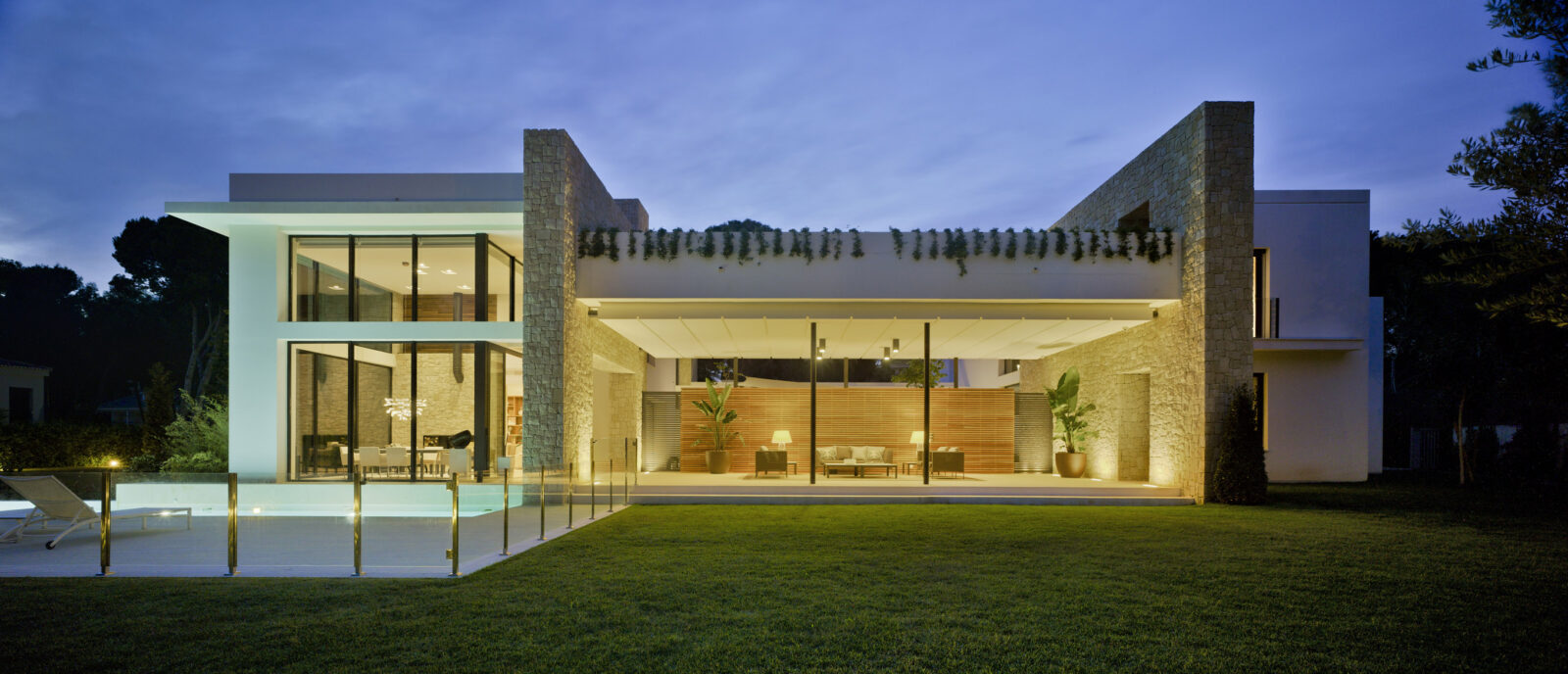
A modern marvel, this villa in Valencia, Spain elegantly weaves high-tech amenities with an architectural appreciation for natural elements. (Inmobiliaria Rimontgo)
4. Impact of Remote Work
38% of surveyed brokers reported that remote work would be one of the top three factors likely to positively impact their luxury property market in 2023.
The pandemic-fueled remote work trend is set to continue in 2023 and beyond. According to more than a third of Forbes Global Properties surveyed members, remote working is overwhelmingly positive for property markets and will be one of the most important factors impacting their luxury markets in 2023.
“The trend of working from home, or even partially remote work, and the drive to find higher-quality living spaces outside of major metropolitan areas, are not fading anytime soon,” said Matt Beall of Hawai’i Life. He predicts that “wealthy buyers will continue to leave denser urban areas in favor of more private, spacious, sustainable, and health-conscious surroundings.”
In France, young families will continue to bolster the growing trend of buying “a second property further from their physical workplace, in order to improve their quality of life,” observed Olivier de Chabot-Tramecourt of Groupe Mercure. “These are no longer strictly speaking secondary residences, but more semimain residences.”
New direct flight paths will continue to open opportunities for remote workers in resort destinations. In Mexico’s Los Cabos region, a new direct flight to and from Europe is already attracting potential buyers to the region, and additional flights are in the works, noted Ramiro Palenque Bullrich of 2Seas Los Cabos. “Since the pandemic began more buyers are living here fulltime since they can work remotely. Why not be at the beach if you can live and work anywhere?”
“Since the pandemic began more buyers are living here full-time since they can work remotely. Why not be at the beach if you can live and work anywhere?”
—Ramiro Palenque Bullrich of 2Seas Los Cabos in Mexico

The Austonian is one of the most enticing addresses in Austin, Texas, and this penthouse reaps the benefits with jaw-dropping views and upscale design. (Moreland)
5. Shift in Overseas Buyers and Foreign Investment
31% of surveyed brokers expect overseas buyers to be one of the top three factors to positively impact their luxury property market in 2023.
As the world continues to open beyond pandemic-era restrictions, nearly one-third of brokers reported that an expected change in overseas investment and the number of foreign buyers would positively impact their markets.
As explored further in Section IV, a renewed interest from potential prime property buyers in Asia is expected to boost the activity in some markets during 2023. “Australia has seen a recent resurgence of interest from Asian region buyers and this is further predicted for 2023—a positive for our market,” said Jacobs of Private Property Global.
An uptick in buyer interest in Hong Kong’s luxury homes is expected in 2023, fueled by an expected more free flow of travel between Hong Kong and China. “This will create a strong catalyst for buyer interest from China as was seen pre-Covid,” according to OKAY.com’s Joshua Miller. “If inflation and interest rates plateau in 2023, we anticipate a return of these long-term investors to the market seeking attractive properties that have experienced price corrections.”


